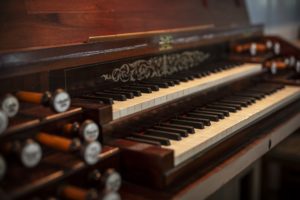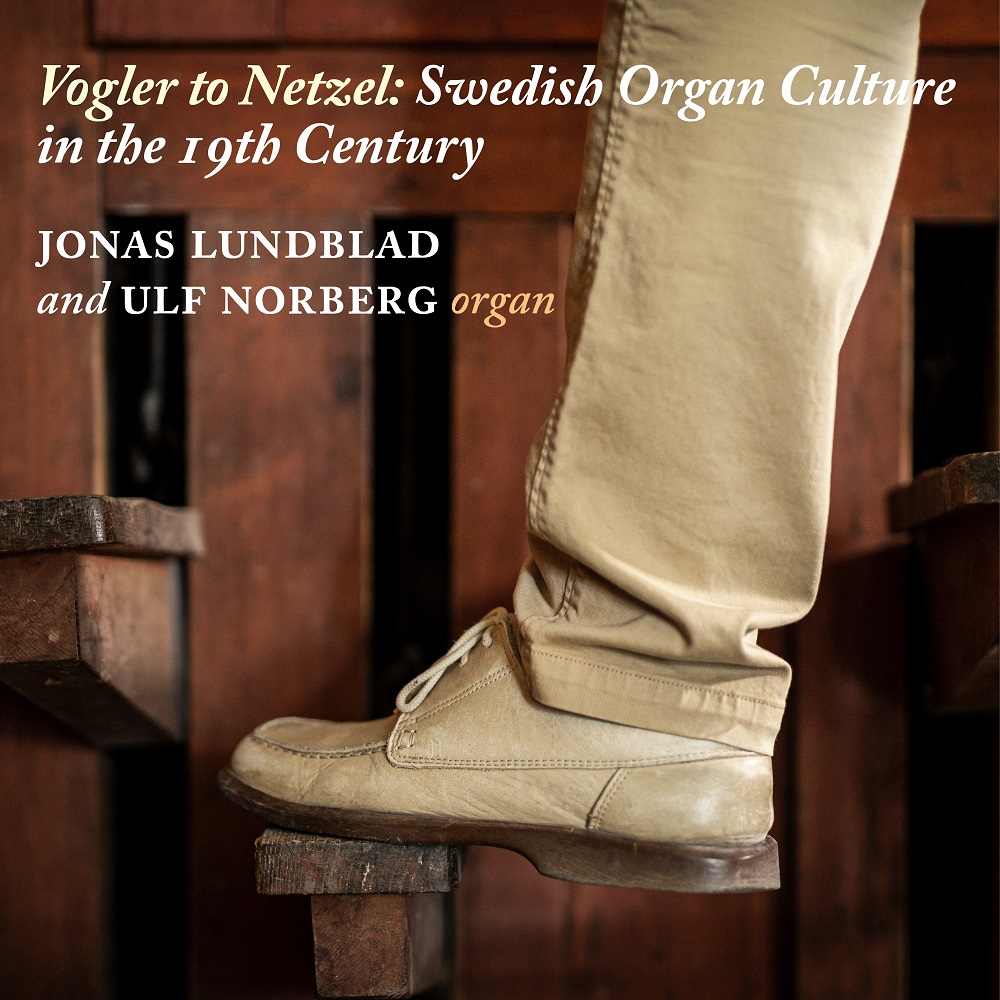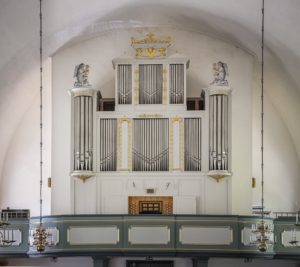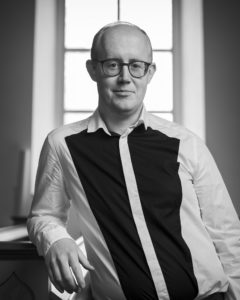Vogler to Netzel: Swedish Organ Culture in the 19th Century
Jonas Lundblad, Ulf Norberg, Tobias Ringborg
The organ played an important part in the changing musical climate of nineteenth century Sweden. Despite this, its repertoire of the time has remained largely forgotten. On this release, organists Jonas Lundblad and Ulf Norberg, together with violinist Tobias Ringborg, perform a selection of the rich repertoire of the 19th and very early 20th centuries, with music by Laura Netzel, Gustaf Mankell, Valborg Aulin, Sara Wennberg-Reuter, Gustav Hägg, Bernhard Crusell, and Franz Berwald. The informative booklet also touches upon many examples of the parallel development of organ construction and repertoire in Sweden.
The recordings document five historic organs, in original or restored condition, and music that has been relatively unknown is brought to the forefront. For instance, several important but rarely represented female composers have finally been recorded.
The music is performed on organs in Östra Husby, Väderstad, Rök, Saint Peter’s church in Västervik, and the Vasa Church in Gothenburg, on instruments built by contemporary framousorgan builders such as Åkerman & Lund, Marcussen & Søn, and Gustaf Andersson.

There was consensus within the relatively recently founded Royal Swedish Academy of Music concerning the falling standards of church music and organ playing. The Swedish nation was reeling from multiple war efforts, and there was an obvious lack of both organisation and competence among organists. However, leading figures like the Academy Secretary Pehr Frigel also wanted to establish a new, elevated aesthetic. After the galante style of the Rococo era, Italian vocal polyphony and the music of Johann Sebastian Bach was to inspire a more tightly bound and dignified style of organ playing. The Academy of Music also shifted its educational focus in the first half of the nineteenth century to primarily training organists. Through them, proficiency also in musical theory would be disseminated among churches and schools across the nation.
In 1820, the organ builders Gustaf Andersson and Pehr Zacharias Strand were dispatched on a study tour across Europe. By examining organs by Gottfried Silbermann, J. G. Mende, and C.H.A. von Knoblauch, they would later be able to construct new organs of higher grade in Sweden. The only preserved major organ by Gustaf Andersson is located in Östra Husby Church on the peninsula Vikbolandet, south of the city of Norrköping. This majestic instrument has a wider tonal foundation than the organs of earlier generations. Uniquely for Swedish organ building, it displays a clear influence from the baroque organs of the Silbermann tradition, which still characterised much of German organ building at the time. Here, a classical sound is combined with the expressive flute and string registers of the early Romantic era. The instrument was inaugurated in 1827, a time when improvisation was still the dominant way of playing the organ. Among the few notated organ works from this period, several of those by musicians in the Östergötland province are performed on this recording.
Recorded, edited and mixed by Erik Sikkema, 12th Oct 2020 – 14th Jun 2021.
Graphic design: Sofia Berry
Photography: Ola Högberg
Executive producer: Erik Hamrefors
-
1.Gustaf Adolf & Ebba Brahe : Overture Music: Georg Joseph Vogler
-
2.Tempo giusto Music: Adolph Mecklin
-
3.Recessional Piece Music: Johann Christian Friedrich Haeffner
-
4.At Mary’s First Communion Music: Bernhard Crusell
-
5.March in C Major Music: Bernhard Crusell
-
6.A Rural Wedding Celebration: I. Introduzione: Adagio - Allegro moderato (attacca) Music: Franz Berwald
-
7.A Rural Wedding Celebration: II. Hymn: Adagio Music: Franz Berwald
-
8.A Rural Wedding Celebration: III. Choral Music: Franz Berwald
-
9.A Rural Wedding Celebration: IV: Pastoral: Allgretto Music: Franz Berwald
-
10.A Rural Wedding Celebration: V. Allegro moderato Music: Franz Berwald
-
11.A Rural Wedding Celebration: VI. Folk Song: Andante maestoso Music: Franz Berwald
-
12.A Rural Wedding Celebration: VII. Allegro moderato Music: Franz Berwald
-
13.Organ Sonata in C minor: I. Allegro maestoso Music: Knut Lönngren
-
14.Organ Sonata in C minor: II. Trio: Andante cantabile Music: Knut Lönngren
-
15.Organ Sonata in C minor: III. Allegro risoluto Music: Knut Lönngren
-
16.Fugue in F Major Music: Edmund Passy
-
17.Prelude and Fugue over the names A-dolf H-ess-e: I. Prelude Music: Gustaf Mankell
-
18.Prelude and Fugue over the names A-dolf H-ess-e: II. Fugue Music: Gustaf Mankell
-
19.Adagio in B Major Music: Gustaf Mankell
-
20.Pedal Etude Music: Gustaf Mankell
-
21.Fantasy: I. Allegro con fuoco Music: Hermann Berens
-
22.Fantasy: II. Andante con moto Music: Ivar Hallström
-
23.Fantasy: III. Allegro con fuoco Music: Ludvig Norman
-
24.Stolts Elisif: Prelude on the Organ during the Nuns’ Procession to Church Music: August Söderman
-
25.In memory of August Söderman Music: Wilhelm Heintze
-
26.Catholic Mass: Offertorium Music: Wilhelm Heintze
-
27.Fantasy and Fugue in D minor: I. Fantasy Music: Sara Wennerberg-Reuter
-
28.Fantasy and Fugue in D minor: II. Fugue Music: Sara Wennerberg-Reuter
-
29.Festive March in C Major Music: Gustav Hägg
-
30.When Leaves Fall Music: Valborg Aulin
-
31.Adagio for Violin and Organ Music: Ika Peyron
-
32.Meditation Music: Laura Netzel
-
33.March Music: Laura Netzel
-
34.Romance in E Major for Violin and Piano or Organ Music: Laura Netzel
-
35.Prelude and fughetta: I. Prelude Music: Laura Netzel
-
36.Prelude and fughetta: II. Fughetta Music: Laura Netzel
-
- Total playtime




